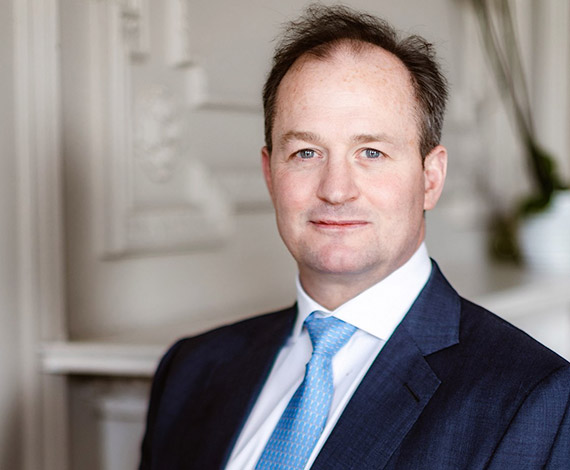
Creating and Resourcing an Enforcement Plan to Persuade a Funder to Invest in Your Enforcement
The following article was contributed by J-P Pitt, Investment Manager at Asertis. Stating the obvious, the principal reason a funder chooses to fund enforcement, as with every aspect of litigation funding, is to receive more at the end than is paid at the beginning. In practical terms, enforcement extends beyond being purely a legal process. Much of it involves practical project management, where litigation is one of two key workstreams. The other is influence or persuasion – communications or PR. These two elements are entirely complementary and complimentary. In project management terms, the starting point is a critical path to cash, which needs to be mapped out. Enforcement can be complex, with many moving parts, and, whilst the goal - to realise recoveries - is always clear, the path is often far from clear. To persuade a funder to invest, three essential pieces of work are necessary to map out a critical path to cash: an asset analysis of the defendant(s); obtaining legal opinion(s) or advice in the relevant jurisdiction(s); and the creation of an enforcement plan. Based on a comprehensive asset analysis, having an enforcement plan in place at the outset is pivotal to maximizing chances of success. Allocating sufficient time and adequate resources to execute the plan is therefore of paramount importance. The execution of that plan should be informed, or intelligence-led. In order to create and execute the appropriate strategy, the project team should be thought of as taskforce, since it will need to be multi-disciplined and cross functional. It must be cohesive, and the components must be able to operate in concert with each other. Therefore, teams that have worked together successfully on complex projects are always comforting and persuasive from an investment perspective. Like all projects, there must be a director who drives progress by coordinating how and when the task force conducts its activities. To achieve the strategic goal of realising recoveries (by seizing, and where necessary selling, assets) the director’s key role is to ensure taskforce components operate in concert. Hence, the director must be a professional decision-maker, who ensures clear communication and unity of purpose by giving timely and clear direction. The director could be: the claimant; the funder, if the claim has been acquired; a key lawyer who may be sitting in a core jurisdiction, or simply one who has experience of coordinating and delivering such projects; or an investigator who may have assembled the team in the first place. So, what are the taskforce components? For the litigation workstream, lawyers will be required for each jurisdiction in which the legal/litigation workstream needs to be pursued. Insolvency Practitioners (IPs)/liquidators and/or Trustees in Bankruptcy, as insolvency is often the most critical tool in any enforcement. Forensic accountants may also be required, usually for two purposes: to assist with the tracing of funds; and as expert witnesses at trial to prove how those funds have been traced. For the influence workstream, communications professionals are required to manage, if appropriate, the media narrative surrounding a case and any messaging. This may involve both front foot PR (offensive) in order to generate indirect pressure, and back foot PR (defensive) to protect reputational risk: often the most critical factor for any litigant and/or funder. Finally, investigators form a crucial part of the team and should be instructed from the outset to ensure that any enforcement plan is well informed and its execution is intelligence-led. The information they provide should inform the taskforce director’s decisions and assist in directing how and when the task force conducts certain activities. The investigators’ role is multi-faceted: understanding what motivates a defendant; conducting an asset analysis – identifying what and where assets are; monitoring throughout the life of the case; and assisting with gathering evidence. There are several key vulnerabilities which can undermine success, and potentially, one weak link can undermine the overall objective. Lack of coordination and communication anywhere within the taskforce can potentially be very damaging. The same applies if there is a poor sequencing of activities, such as seeking to recover an asset before a full intelligence picture is gathered. Equally, a bad practitioner, investigator or comms specialist, who oversteps their brief, might derail the case through negligence or incompetence. Failure to appreciate a defendant’s critical vulnerabilities and motivations (e.g. is there a trophy asset with totemic value?) might result in strategic mistakes. Clearly, if there are insufficient funds to marshal the necessary resources, then the team effort may well fall short of the required standard for success. Money is an issue in every type of commercial litigation: it is often not enough to win the case in court and receive judgment in your favour. It must be understood that the financial resources required to achieve success in enforcement of that judgment are considerable - at least as much will be expended in achieving success as was expended in obtaining the judgment. Often it can be significantly more. Accordingly, there should be plenty of contingency factored in. Although the goal may be clear, the path that has to be taken to reach it, is routinely unclear. Ultimately, anyone seeking funding for an enforcement opportunity should front-load their assessment of the risks and approach the funder with a clearly thought-out plan. This will enable any funder to understand firstly what the opportunity is and whether it might be a viable investment, and secondly, how the risks may be treated, tolerated or taken; most usually, treated. J-P Pitt is an Investment Manager at Asertis, specialising in commercial disputes funding. Prior to joining Asertis, J-P was a Director of Litigation Funding at Harbour Litigation Funding. He is also a qualified solicitor.



